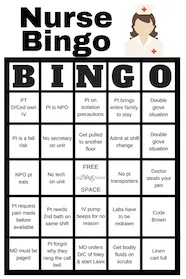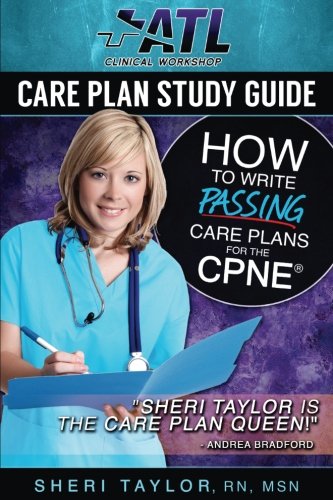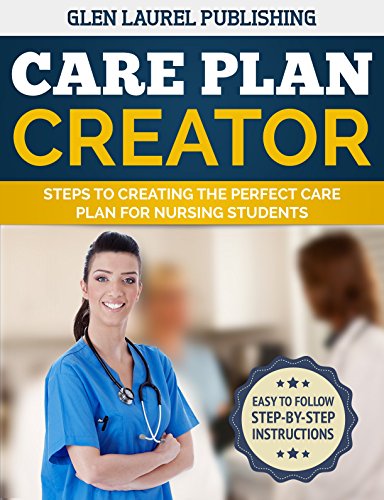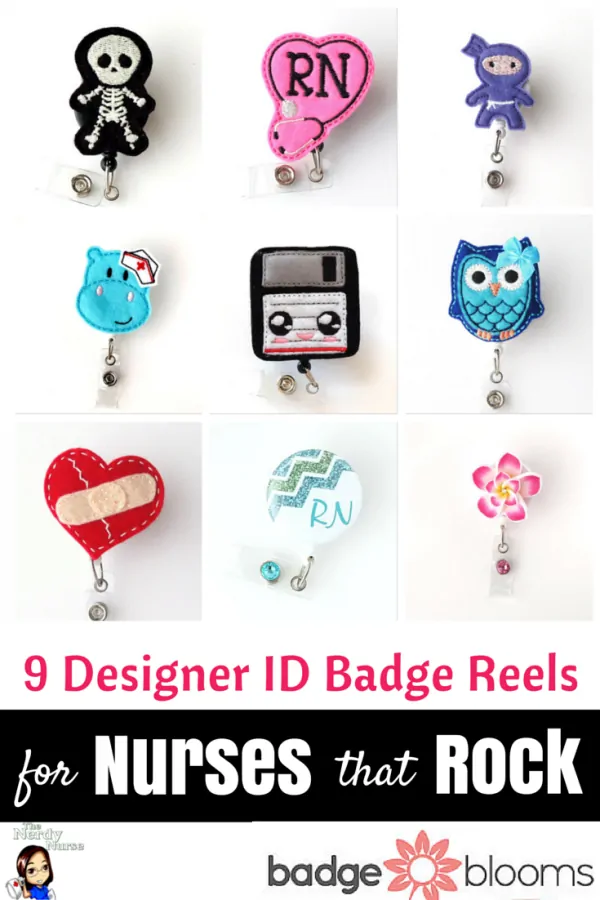Last week we talked about the importance of Nurse Mission Statements. This week let’s take it a step further and discuss Nursing Goals.
If you’re in nursing school and reading this, you may be tempted to stop reading because you’re sick and tired of care plans. You stay up until the wee hours of the morning in order to craft the perfect care plan and you think to yourself “I’m not even going to use this as a nurse!”. And if you’re already a practicing registered nurse, you may feel that discussing nursing goals is irrelevant now. In both situations, however, I say this: being able to define and attain an appropriate nursing goal is crucial to your existence as a great RN.
If you are a bedside nurse, you deal with nursing goals all the time, you probably just don’t even realize you’re doing it. Whether it’s encouraging incentive spirometry, giving blood pressure pills, ambulating your patient, or reassessing a pain score after giving an analgesic, you are actively participating in a living and breathing care plan and implementing many interventions which all lead to the eventual goal. Let’s review how optimizing our nursing goal will help us to optimize our practice as a registered nurse.
The Care Plan and the Nursing Goal
The definition of a nursing goal is what we call the desired outcome, or change, in the client’s condition. Our whole job revolves around nursing goals. If nursing goals were not needed, you and I would be out of a job. Our patients rely on us, their families rely on us. They’re that important, and they’re very diverse.
You cannot have an appropriate goal unless you have an appropriate nursing diagnosis and nursing intervention. When you’re looking at our patient, Mr.Jones, lying in bed who is in congestive heart failure (or for our nursing diagnosis, we would say “fluid volume overload”, not a medical diagnosis), we immediately in our minds jump to the goal (or what we wish for the outcome to be). In simple terms, the person who has excess fluid needs to not have that fluid anymore. But as a nurse, let’s remember that the intervention and the goal need to be measurable and specific.
I remember when I was in nursing school and I could sometimes cut and paste my care plans from previous patients to use on my current patient. While you’re not supposed to do that, I was a good student in that I changed the interventions and the goals to be specific for each patient. So in regards to Mr.Jones, his interventions could be the following: being placed on a low sodium diet, have a fluid restriction of 1L per day, take diuretics at 0900 and 1500 each day, monitor strict output, and implement daily weights to track progression. All of these appropriate interventions will lead us to what we eventually wish to accomplish, which is our outcome.
Putting the Interventions into Action
Alright, so we defined what a nursing goal is. Now the question is this: how do we successfully attain it? As stated previously, we must employ specific, appropriate, and relevant interventions in order to attain our goals.
With the intervention in mind, what do we expect the outcome to be? There can be a lot of interventions that all meet the same main goal. For Mr.Jones in the example above, all of those interventions mentioned will help him to diurese, and essentially, lose the excess weight and fluid that he has been carrying around. A properly written goal, or outcome, for Mr.Jones will read similar to the following:
Within three days of admission, Mr. Jones will return to his dry weight of 185lb.
[easy-tweet tweet=”Students and RN’s, being able to define an appropriate nursing goal is crucial to your existence as a great RN” usehashtags=”no” url=”https://wp.me/p1mMzJ-3Gb”]
The goal is succinct, measurable, and attainable. This last word is key here, and where I’ve seen a lot of my nursing students stumble in their care plans. They have the right concepts in their head, but they are not always practical in the time frame. In this example, if a patient is 10-15 pounds heavier because of his excess fluid, he cannot lose that weight overnight. Let’s look at another example.
Mrs. Smith was admitted for failure to thrive and malnutrition. She’s been bed-bound for three months and has lost considerable weight. You can have multiple goals for her, such as increased po intake, electrolyte imbalances corrected, etc. An inappropriate, and unattainable, nursing goal would be “Mrs.Smith will ambulate twenty feet by the time of discharge”. When the patient hasn’t walked in three months, I don’t think that she will be walking (especially twenty feet) by discharge. When thinking of an attainable nursing goal, we must consider the patient’s baseline outside of the hospital. What was he/she doing before? What was their level activity, what are they capable of?
We never thought that those long hours of care plan writing would lead to much. But now as we take care of our sick patients, we can come to the conclusion that those hours of pen and paper care plans were certainly not wasted. Every day, we are utilizing our care plans and implementing our goals through various interventions. Ultimately, a properly developed goal will make us a much more successful nurse.
nursing.com has a great post about writing nursing care plans. It includes videos and examples.
For more information on Nursing Goals check out:
- Free Writing Course for Nurses and Other Healthcare Professionals
- Why Personal Branding is Important for Nurses
- How to Create the Perfect Registered Nurse Resume
- Anatomy Coloring Books
- Are Nurse’s Notes Becoming a Lost Art?
Nursing Care Plans: Diagnoses, Interventions, and Outcomes, 9eNursing Care Plans: Diagnoses, Interventions, and Outcomes, 8e
Nursing Care Plans: Nursing Diagnosis and Intervention
Care Plan Study Guide: How to Write Passing Care Plans for the CPNE
A Simple Guide to Writing a Nursing Care Plan
Care Plan Guide Step-By-Step 2016-2017: Care Plans Made Easy
Download Nurse Bingo Today!

Liven up any shift with a fun game of bingo. See who can fill a row first!
Fill a whole card and lose grip with reality.
Your privacy is protected. We will never spam you.











